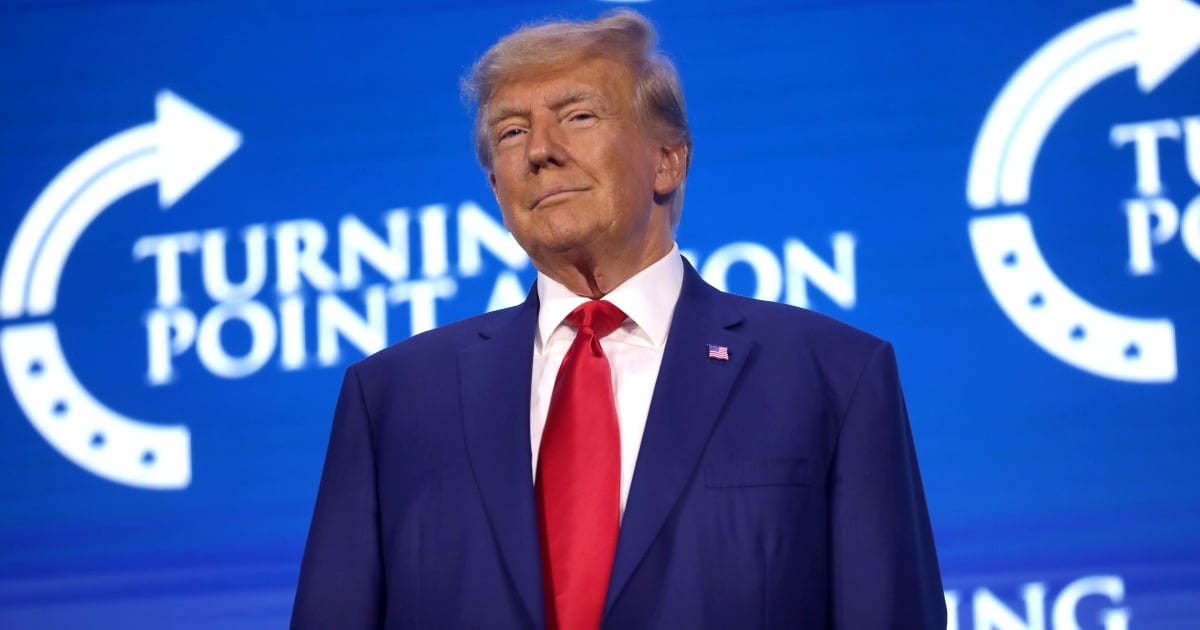
Donald Trump's policy toward Latin America in his second term will be characterized by an even harsher stance on Cuba, particularly regarding migration issues and regional security, according to his advisor and former ambassador to the Organization of American States, Cuban-American Carlos Trujillo.
The Trump administration, Trujillo states, plans to address the impact of Cuban migration and that from other countries in the region as part of a broader effort to manage migration flows into the United States.
Cuban migration, the center of the strategy
During his first term, Trump implemented pressure policies on the governments of Latin America, particularly in the Northern Triangle of Central America and Mexico, to reduce migration to the United States.
Trujillo suggests that in a second term, Trump would broaden his approach to other countries, including Cuba, where the economic and social situation has increased the exodus of citizens to the north.
"The goal is to curb illegal migration, which involves not only working with Mexico but also with countries in South America and Central America," Trujillo said in statements to NBC, suggesting that the administration will explore options such as bilateral agreements, economic incentives, and migration blocks.
Border crossings reached record numbers in the early years of the Biden administration, and although the asylum restrictions implemented during the summer reduced the flow of migrants, the challenge remains.
Trump's policy could involve a return to asylum cooperation agreements, under which Cuban migrants and those from other countries could be deported to third countries before applying for asylum in the United States.
Cuba and Tension with Russia and China
In addition to immigration, the Trump administration aimed to diminish the influence of China and Russia in the Western Hemisphere, particularly in countries like Cuba, with which it has strengthened relations in recent years.
According to Trujillo, the new republican government will maintain a "firm stance" against the "acts of aggression in our hemisphere" from nations such as China and Russia, which seek to expand their military and economic presence in Latin America.
It has been reported, for example, that China and Cuba may be negotiating the establishment of a joint military training center on the island, which has raised alarms in Washington.
Additionally, in the summer of 2023, Russian warships also docked in the port of Havana, clearly demonstrating the Kremlin's support for the Cuban government.
The Biden administration has expressed concern about these movements, and Trujillo suggests that the Trump government would intensify efforts to limit the influence of China and Russia in Cuba, and in the region at large.
In the words of the former ambassador to the OAS, “Trump’s policy will not allow Cuba, with the support of foreign powers, to compromise the security of the United States.”
Impact on the Cuban economy and bilateral relations
The economic situation in Cuba has been profoundly affected in recent years, both by the tightening of sanctions during the Trump administration and by the effects of the pandemic and internal issues.
During his first term, Trump revoked several of the measures to open relations with Cuba that had been implemented by Barack Obama, including the ban on U.S. flights to most Cuban cities and restrictions on remittances.
Before leaving the White House, he also designated Cuba as a "state sponsor of terrorism," which further complicated bilateral relations and limited the flow of foreign currency to the island.
The Biden administration lifted some of these restrictions, allowing flights and the sending of remittances, although the heavier economic sanctions remain in effect.
Trujillo, of Cuban origin, stated that it is likely Trump will reinstate the restrictions in full, arguing that "economic pressure is an effective tool to weaken the Communist Party's control over the island."
This strategy has been criticized by those who argue that the sanctions exacerbate the hardships faced by the Cuban people, who are experiencing a severe economic crisis that has led to shortages of food, medicine, and fuel.
However, Trujillo defended Trump's stance, stating that “pressure on the Cuban government is necessary to promote real change and prevent the consolidation of authoritarian regimes in the hemisphere.”
Impact on the Cuban community in the United States
The return of a republican administration with a more restrictive approach towards Cuba and other Latin American countries could have a direct impact on the Cuban community in the United States.
Immigration control policies would not only tighten restrictions at the border, but could also limit asylum options and other immigration programs that currently allow many Cubans to enter the country legally.
Similarly, the strategy of economic and diplomatic pressure on the Cuban government could worsen living conditions on the island, increasing migratory pressure.
Trump's policy towards Latin America could have profound implications for the lives of Cubans both on the island and abroad.
While some support a hardline approach against the Cuban government, others fear that tightening sanctions and migration restrictions will hurt the Cuban population more than the political leadership.
Nevertheless, Trujillo praised Trump's "hardline" approach to Cuba, attributing the island's economic collapse to the sanctions imposed by his administration and labeling it as a much more effective strategy than the policies of engagement with the regime.
Filed under: